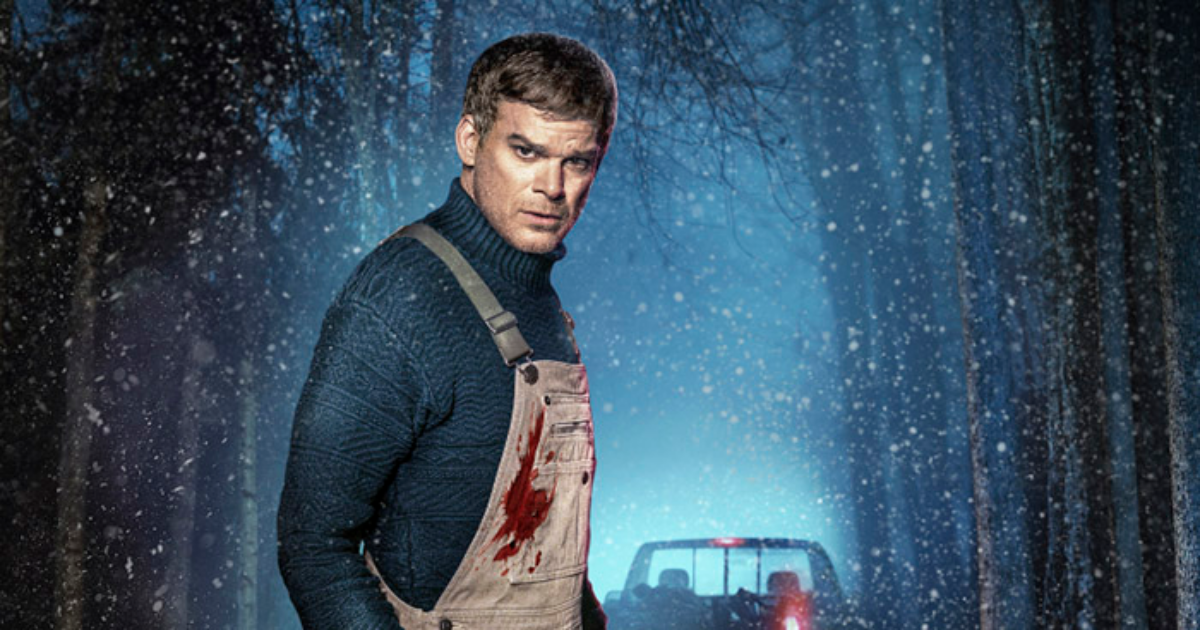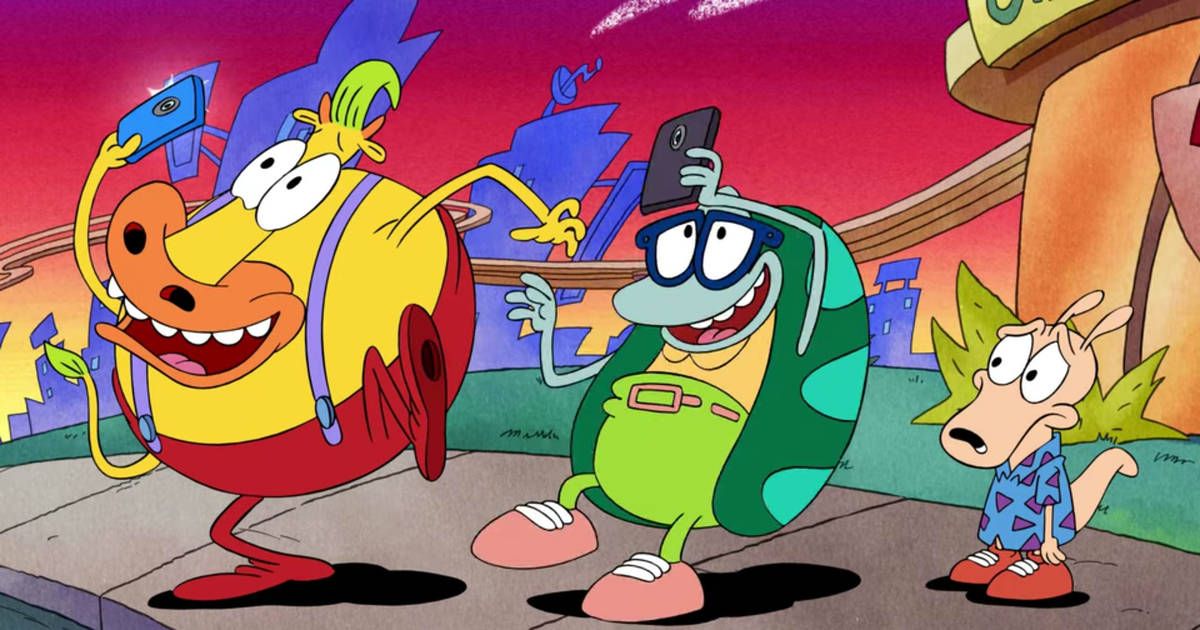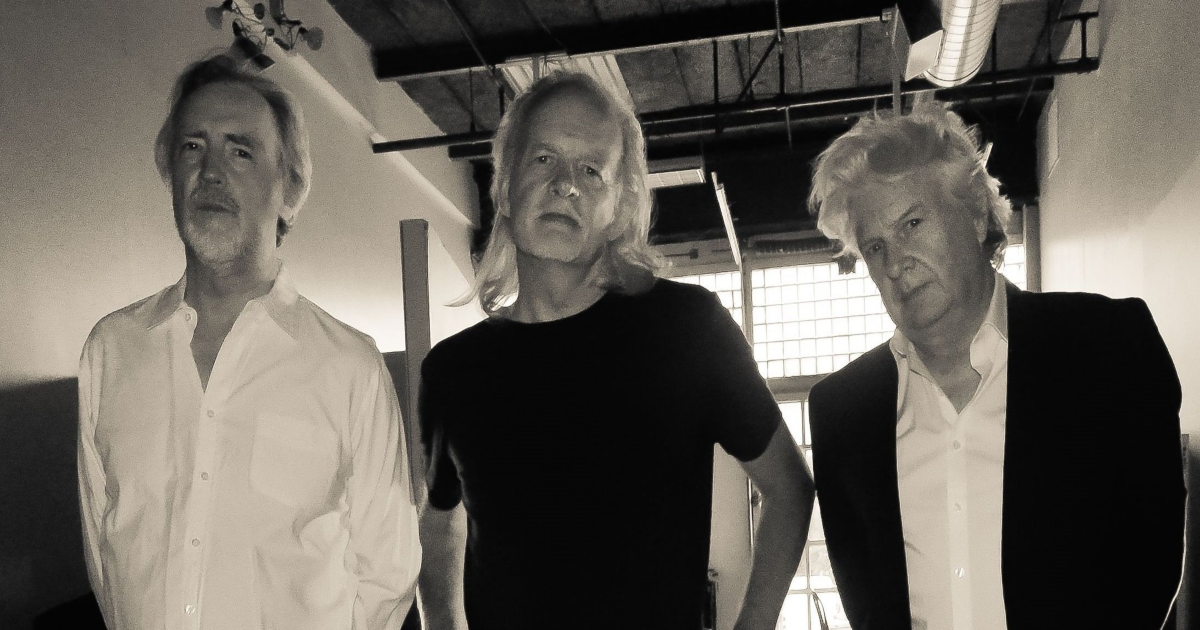In the first years of what has become a never-ending climb toward 'peak TV,' Dexter was one of Showtime's answers to the prestigious antihero protagonists of HBO's The Sopranos and The Wire. It even featured Michael C. Hall, one of many great performers on the morbid HBO masterpiece Six Feet Under. Dexter, alongside Weeds, utilized dark humor and irony to tell stories about criminals audiences couldn't help but love, except Dexter was arguably darker than any of the rest (at least for a while), testing the limits of audience empathy.
Recently, eight years after a contentious finale, Dexter has returned, finding itself a new television landscape dominated by streaming services and cord-cutting millennials. Dexter: New Blood hasn't seemed to suffer at all from this, considering it's become the most-watched television show on Showtime, averaging eight million viewers a week. Certainly, a large portion of its success is due to the love of the character and the original series, but credit must be paid to the startling change in scenery and sound the show exhibits.
Pat Irwin Takes on Dexter
Composer Pat Irwin has expertly matched the tonal shift of the show, complimenting its move from the Cuban-inflected music of Dexter's Miami setting to the icy chill of upstate New York in Dexter: New Blood. The new score goes a long way in making the series feel fresh and original again, despite the nostalgia it may induce. Irwin had big, proverbial, toe-tapping shoes to fill from Daniel Licht, who composed excellent sounds for the horror genre (working on installments of the Children of the Corn, Hellraiser, and Amityville Horror franchises). Licht's score was a big success, with its iconic Blood Theme pushing six million views on YouTube. Licht passed away before Dexter: New Blood was ever ordered as a series, and Irwin stepped up.
He was no stranger to coming into a series with a pre-established score, though, having been brought in during season five of Showtime's hit, Nurse Jackie, when Clyde Phillips took over as showrunner; Phillips would go on to serve the same role for Dexter: New Blood, bringing Irwin with him. Experience aside, bringing in one's own musical palette to a series that had liberally painted outside the lines of the cultural lexicon is a tricky situation. "It's delicate," Irwin said, "and it's something that, as a composer, you cannot ignore."
With Dexter: New Blood, it was tricky because it was a new show, and we wanted to create a new sound. We wanted it to feel different and sound different than the original, we wanted it to be a new experience. Dexter was no longer Dexter; he is Jim Lindsay. But we could not deny the power of the original score, and we wanted to refer to it because Dexter was a familiar character, and the original score was what helped make it familiar [...] I definitely had to acknowledge the original soundtrack. I could not ignore it.
If a composer was to take the reins of a character's aural motifs, the score from Dexter, one of the best original Showtime series, is certainly not a bad horse to ride. "It's fantastic, effective, and just beautiful, beautifully recorded, written, and played," Irwin says. The composer went through the entire original score, making detailed notes throughout every episode. As a result, one can hear echoes of Licht's original compositions (some titles of which are alluded to in the new soundtrack's titles) but they, like Dexter's own 10-year-old memories, are more faintly haunting than fully present. Again, the score, like the character, is creating a new identity, despite his soul being forged in the fires of past misdeeds.
A New Dexter and a New Blood
"The score is kind of operating on a different level. It was coming from a different place," Irwin says. "I began to get footage of a rough cut, and it was stark and austere and cold. I saw the footage of Dexter running through the woods. I saw him walking across the frozen lake, driving his pickup up to his cabin. I saw scenes like that, and I just knew we were in a new place," Irwin says. A new place, and a new time, 10 years after the polarizing ending of Dexter.
A lot can happen to a person in 10 years as they try to change, and as such the show is largely about identity, something the score interrogates with its soundscape. Can Dexter suppress his violent impulses? Can a new identity be formed outside the wreckage of his crimes, and can he really change? Can anyone?
This is the Bay Harbor butcher. He's not going to all of a sudden be a brand-new person. He can work at it. He can have a new day every day, a new approach to that day, one day at a time. So I had to reference those sorts of personality traits that we knew weren't going to disappear. But we're no longer in Miami, and if you want to know the truth, the character is only going to go in one direction. He might have many sides to his personality, but at his core, it's still Dexter. So I referenced those parts of the score the most definitely.
Pat Irwin: From B-52s to Rocko's Modern Life
Irwin has ridden sound waves through the longitude of four decades in the music scene, beginning a diverse and legendary career by joining the No Wave movement of the late '70s with the bands 8-Eyed Spy and the Raybeats. He was part of the great New York scene of avant-punks, alongside Blondie, the Talking Heads, and many others, before joining the B-52s on and off for nearly three decades. Between studying with the iconic John Cage and traveling to France to interview jazz musicians like Dexter Gordon, Irwin has practically seen (and heard) it all, and his discography shows it.
The wintry synthesizers and cold feedback of Dexter: New Blood is a far, frozen cry away from the hepcat jazz-rock of the brilliantly weird '90s cartoon comedy Rocko's Modern Life. His band SUSS does beautiful ambient Americana, combining ghostly synths with pedal steel and slide guitar to evoke the endless nothing of a postmodern road trip through the American Southwest, while his whimsical and light soundtracks for comedies such as Bored to Death and But I'm a Cheerleader couldn't be more different.
Film and television scores often seem like they must be subservient to the pre-existing project, in which case, how can one develop a style when the media their music accompanies is so varied and diverse, without any real thematic continuity? (If one can find continuity between Rocko's Modern Life and Dexter: New Blood, then congratulations, anything's possible). "I'd like to think I have a personal style, in that I'd like to focus in on the characters and the storytelling," Irwin says, and he's exactly right. Composing a score is like conducting emotions, and Irwin knows which notes to nudge from his orchestra of sounds to masterfully capture the feel of a specific character and setting, and to "establish a musical vocabulary," as he puts it.
His roots in the music of the New York City scene of the late '70s and early '80s, as starkly different as it may be from much of his composition work, helped him study the language of that vocabulary and find his own diction. "I have a background playing in rock and roll bands," Irwin reminisces, "but being in a band gives you an angle on collaborating it [...] in a way it's very close to working in a movie or television show, collaborating with the director, hearing ideas, welcoming ideas, knowing when to pick your moment."
Finding a New Vocabulary, From Dexter and Beyond
"What's so beautiful about soundtrack music is the and soundtracks is sort of the combination of those worlds, the boundaries of the terminology, it can get blurred. It can get blurry, and that's what I love about it. You know, I love that collaboration. I love the challenge of taking in ideas from my collaborator," Irwin says excitedly. One of the exciting things about film and television scores is the ability to experiment outside what might constitute 'music' for many people tethered to the same radios, and be able to blur the lines a bit between what's traditionally 'music,' something which brings Irwin back to an early influence, John Cage.
What was interesting about John Cage is that he heard music everywhere, and in a way, film scoring or in the case of Dexter, that was a really important component of it. You know, there's one scene where Dexter early on is working, wakes up, and he crosses the pond from a long shot and goes to this ice fishing cabin [...] and it wasn't until I began to take in the sounds of the wind and the footsteps and integrate them into my sort of ambience that we knew we were getting somewhere.
Even after nearly half a century and a bevy of beautiful sounds, Irwin is still discovering the majesty of music in this way. "The cool thing about doing film and TV," Irwin says, "it's like you get to make something new every episode. You know, you get to create a new vocabulary, a new sound. I love that. I love that opportunity." Dexter: New Blood finished in January, and is available to watch digitally.


.png)
.png)

